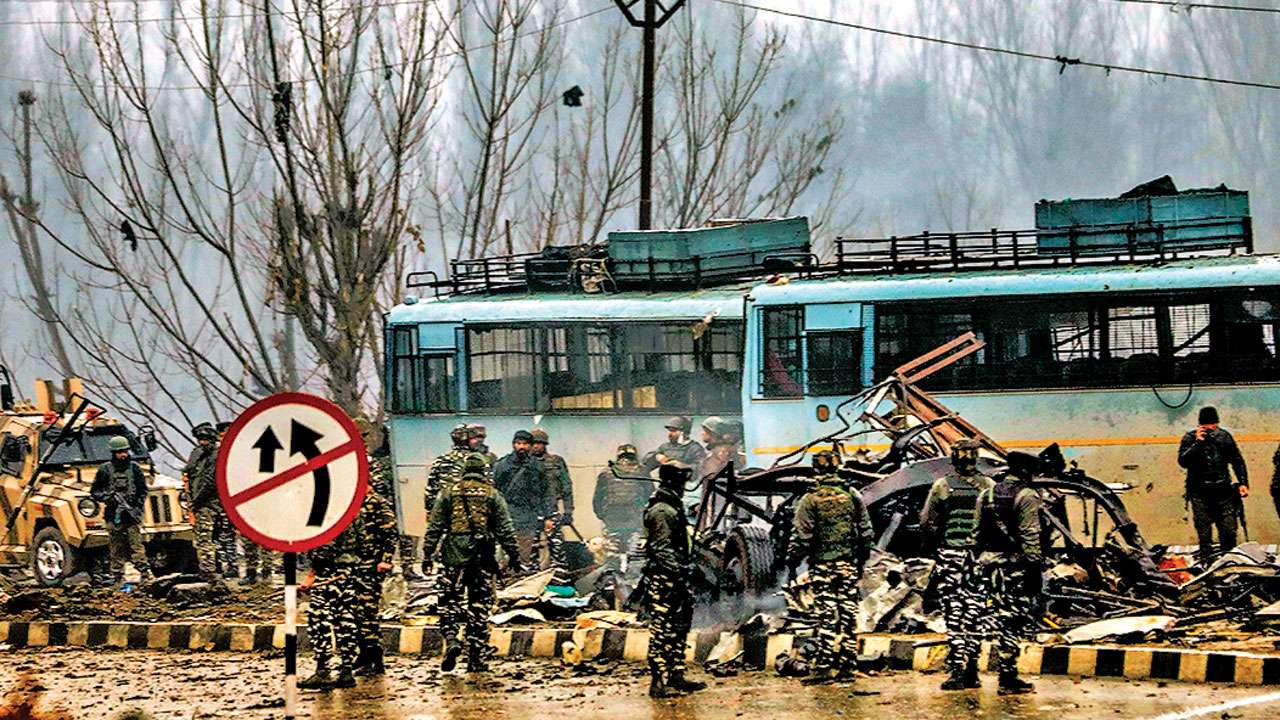
In this very column, along with the whole nation, I had wondered what India’s response would be to the Pulwama suicide terrorist blast. On the afternoon of 14 February, about 40 CRPF jawans lost their lives in the bombing. Twelve days later, on 26 February, India carried out a retaliatory assault. The Indian Air Force targeted the training camps of terrorist outfit Jaish-e-Mohammed in Balakot. Jaish, we may recall, had claimed responsibility for the ghastly suicide bombing at Pulwama.
However, the exact damage and the resultant casualty figures from India’s counter-attack are not entirely clear. There are conflicting reports in international and national media on quantum of destruction inflicted by the satellite-guided SPICE 2000 bombs that our Mirage 2000s released. Thankfully, our brave IAF officer, Wing Commandar Abhinandan Varthaman, returned home safely, despite being taken captive and withstanding hazardous interrogation by the Pakistan Army.
One thing that stands out loud and clear is Prime Minister Narendra Modi’s resolve, when struck, to hit back hard at targets deep inside our hostile neighbour’s territory. Yet, among the several unanswered issues that remain perhaps the most troubling is the possible intelligence failure. Not only were we proved vulnerable to the terrorist attack, but were unable to prevent it once some prior warnings about it, as claimed, were received. How could our 78-vehicle convey, carrying 2500 troops, travelling on a four-lane highway with multiple check-points be so brazenly knocked out by a single suicide bomber and his explosive-laden SUV? How was such a large cache of ammo loaded onto to a vehicle without detection? We are not privy to the outcome of the post-mortem investigations. All we can do is hope that our Cabinet Committee on Security (CCS) has plugged the loopholes to prevent such an atrocity from recurring.
One welcome step is the banning of organisations like the Jamaat-e-Islami in Jammu and Kashmir. Abul Ala Maududi, one of the foremost theologians and philosophers of political Islam in recent times, founded the Jamaat in 1941. He was the real progenitor of the ideology of Islamist theocracy that created and shaped Pakistan. Maududi offered a modernist justification for Islamic revival and state formation. Despite splits in the organisation following the Partition in 1947, Jamaat-e-Islamis are active all over the sub-continent and beyond. What all these groups have in common are Islamist political ambitions underwritten by theological and religious justifications.
The J&K chapter of the Jamaat-e-Islami began in 1945 with pro-Pakistan leanings. Later, it stopped fighting elections, instead projecting itself as a “socio-religious” organisation. It controls and manages hundreds of madrasas (religious schools) and other so-called charitable and welfare organisations in J&K. The Jamaat was a founder member of the Hurriyat Conference. Even today, after distancing itself from the Hurriyat, it maintains what many believe is its core Islamic and separatist ideology. The extent of its responsibility in brainwashing the Kashmiri youth must be immense. Though the organisation is banned today, its schools are still open and active. The Government, wary of its links with separatists and militants, has moved, several decades too late, at last to curtain its activities. No surprise that both the National Conference and the Jammu and Kashmir People’s Democratic Party (PDP) have protested against these measures. Mehbooba Mufti, PDP chief, even led a protest rally on 6th March against the ban. That should leave no doubt in anyone’s mind where her sympathies or interests lie.
But the real question in the aftermath of these dramatic events is if there is a new normal in the Indo-Pakistan stand-off. Surely the retaliatory strike is not enough. What we need is a totally new approach to the problem. It is holding the Pakistani state accountable for what its “non-state” actors do. Our only other option is to use low-cost non-state actors ourselves, but in the long run such stratagems will hurt us too, as they have Pakistan. These ugly and violent monsters easily turn against their own makers and keepers. Instead, if India targets the Pakistani state each time we are hit by a Pakistan-sponsored terrorist group, the spotlight will once again turn to Pakistan as a rogue state, with the military and ISI as the controllers of its cross-border interference and aggression.
Pakistan, whether militarily or economically, is no match for India. Nor can it counterbalance these disadvantages diplomatically. The result of every skirmish, even if inconclusive, is that Pakistan will be weakened and exposed. Holding the Pakistani state responsible for terrorist activities against India and improving our intelligence operations within Pakistan is the way forward.
Author is Director, IIAS, Shimla Views are personal